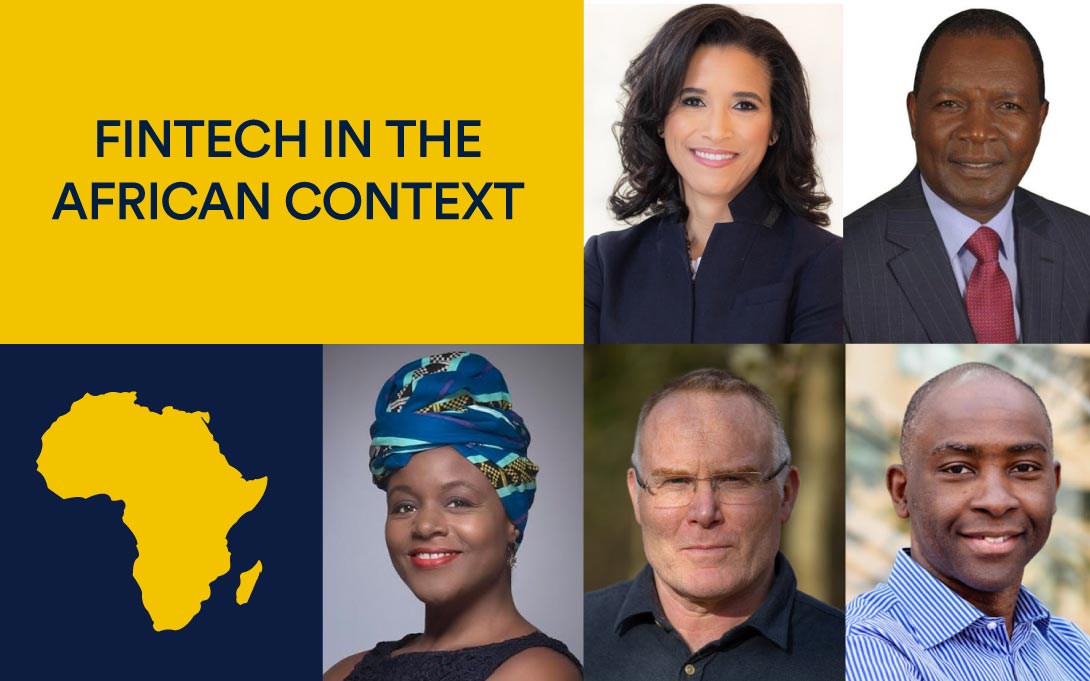
On February 15, the Center on Finance, Law & Policy hosted “Fintech in the African Context” as
part of the University of Michigan’s Africa Week. Panelists discussed regulatory frameworks, barriers
to scale, and business models that respond to the varied needs of Africans.
According to Njunga Ndung’u, a former governor of the Central Bank of Nigeria, a regulatory sandbox approach by the central bank allowed M-PESA to innovate, furthering goals around geographic and gender inclusion. Nick Hughes, founder of M-PESA, agreed but noted that the regulatory sandbox alone is not enough, as shown by the failure of M-PESA to scale beyond Kenya. A confluence of many layers of infrastructure was necessary, including mobile networks and cheap smartphones.
Viola Lewellyn, founder of TradeTech firm Ovamba, noted that the diversity of governments and cultures in Africa creates a barrier to “hockey stick” growth, but that data provides the ability to create policies that can cross state lines and direct capital towards productive development. Kunle Olukotun, co-founder of Migo Money agreed, noting that Africa’s $528 billion gap in capital access is partially explained by variation in regulation across countries. He also noted the persistent technology gap, saying that companies currently have to innovate around the lack of smartphone access.
All panelists agreed that growth in African fintech is limited by a lack of homegrown VC investment, with all participants noting that their networks outside of Africa had been necessary to have a chance to raise capital from the US and EU. They closed by noting the need for improving physical and regulatory market structures to support innovation by and for Africans.
Bryan Ricketts is a dual-degree MPP/MBA student, and a research assistant with the Center on Finance, Law & Policy.
